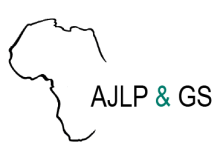Resource information
Context and backgroundIn Senegal, the rise in land disputes leads to questions about the place of the administration judge in the protection of the land rights of citizens. Indeed, most of the conflicts that arise either between farmers and herders, or between populations and private investors, are often resolved through alternative methods, namely conciliation or land mediation. Some conclude that there is a “preponderance” of alternative modes of resolving land disputes over jurisdictional modes. Moreover, the marginalization of the litigation process is largely explained by the exaggerated use of alternative methods of settling land disputes. However, in recent years, land disputes have been brought more and more before the administrative chamber of the Supreme Court.Goal and objectivesThis study aims to highlight the place and role of the Senegalese administration judge in the resolution of land disputes. The objective is to test the effectiveness of court decisions compared to alternative methods of resolving land disputes such as mediation or conciliation.MethodologyThe methodological approach consisted on the one hand in carrying out in-depth research in centers specializing in land governance such as NELGA (AOF) located at Gaston Berger University in Saint Louis (Senegal), in order to use the necessary documentation. On the other hand, research at the Supreme Court (Dakar-Senegal) made it possible to collect and use important decisions in land matters.ResultsResearch results have shown that the administrative judge is increasingly moving towards better protection of the land rights of citizens. However, this relative jurisdictional protection deserves to be improved and readapted to the current requirements of the rule of law. Today, the role of the judge in resolving land disputes is becoming imperative in the context of the rise of large-scale land grabs, insecurity and land corruption.


